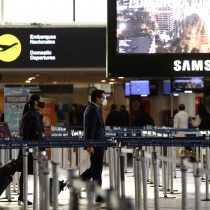
As COVID-19 pandemic vaccination progresses and mobility in the world resumes, our country faces an increase in contagion that threatens summer, which strikes expectations of normalization of economic activity again. However, in favour we have our learning capacity and adaptability, which can be clearly realized in air transport, which could be robusted after the pandemic, because of its service attributes, which do not offer other modes of travel. The evidence available in international studies suggests that the likelihood of air contagion is low, both by personal prevention measures and by those implemented within the transport system (Aeronautical Authority, airport and airline dealers), but mainly by the habit of the air passenger himself, who normally respects the rules of prevention and safety.
On the other hand, the highest valuation variable for passengers in the world and, also in Chile, is travel time. Because of this, a new wave of post-pandemic air transport growth, similar to that of the 2015-2019 five-year period, could occur. The decision to travel of individuals corresponds to a derived demand, i.e. it is not traveled for travel, but for the primary (social-economic) activities of individuals and companies. So to reduce the risk of contagion and in the face of an uncertain economic field, air transport offers a great opportunity to support national revival. The other short-term conditions are in Chile, quality airport infrastructure, airport access infrastructure and airlines offering flights to regions and the world. Therefore, the price of the ticket and the frequency of travel will ultimately be the variables that will determine the possible second wave of air transport. In the case of the price of the ticket, it will be determined, in part, by the international price of oil (currently low) and which has maintained negative correlation (decreases the price of oil, increases the number of trips) with the growth of domestic air transport in the five-year period mentioned. In this case, Chile needs a second wave, both for contagion prevention and for improving the functioning of the economy.
The content poured into this opinion column is the sole responsibility of its author, and does not necessarily reflect the editorial line or position of El Mostrador.





